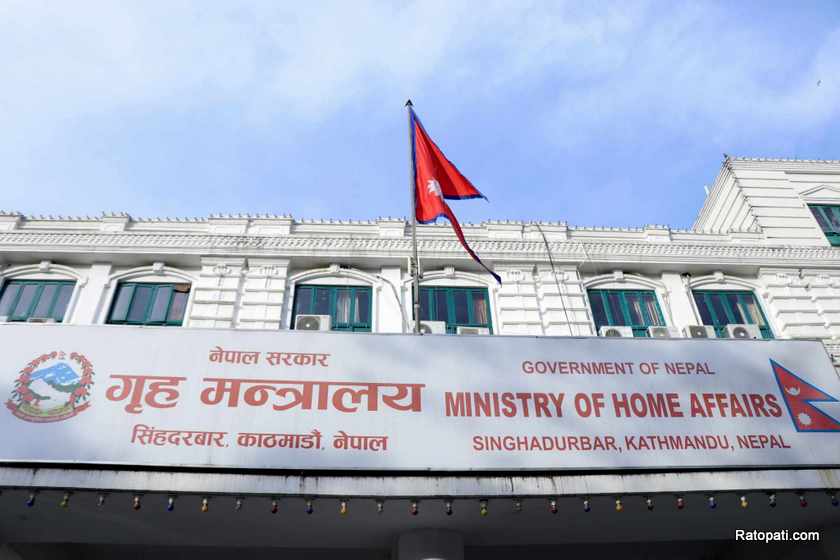APF new draft bill faces resistance from officers

Kathmandu, August 22 - Six months have passed since the Cabinet granted in-principle approval for the draft of the new Armed Police Force Act, but the draft bill has yet to be finalized.
The Ministry of Home Affairs formed a study task force, led by Joint Secretary Jhakka Prasad Acharya, to provide recommendations for the draft. The process has become more complex after the working group recommended removing the mandatory retirement after 30-year service starting only from the year 2038.
The report was submitted to Home Minister Ramesh Lekhak few weeks back. Based on this report, ministry officials are working to finalize the bill. However, the armed police have expressed dissatisfaction with some provisions of the draft.
This dissatisfaction has led ministry officials to work on persuading the APF rank and file. A discussion has been scheduled for August 28 at the Armed Police Force headquarters, Halchowk, involving certain officers and the Inspector General of Police (IGP) of the Armed Police Force.
The new law will replace the Armed Police Force Act, 2001. Bharatmani Rijal, Joint Secretary of the Law Division of the Ministry, stated that discussions are progressing to include most provisions from the current Armed Police Force Regulations in the new bill.
"Some issues are still being finalized," Rijal told Ratopati. The draft proposes raising the age limit for admission to the police inspector position, with the new limit set at 27 years due to the introduction of a four-year graduation program.
The draft also proposes removing the existing mandatory retirement after 30-year service for the APF personnel and implementing new age and tenure limits. It is likely that the age limit for the Inspector General (IGP) will be increased from 58 to 60 years.
A member of the drafting committee mentioned, "As proposed in the Civil Services Act, it has been agreed to set the IGP age limit at 60 years." The draft also proposes retirement ages of 59 for Assistant Inspectors General (AIG) and Deputy Inspectors General (DIG), 58 for Senior Superintendents (SSP), and 57 for Superintendents (SP) and Deputy Superintendents (DSP).
The Acharya Working Group's proposal to standardize tenure across police and armed forces will also be included. Discussions are ongoing about setting tenures of three years for the Inspector General of Armed Police Force, three years for AIG, five years for DIG, and eight years for Senior Superintendents.
The Acharya task force concluded that even if the provision of mandatory retirement after 30-year service is removed, it should not be implemented immediately. The working group suggested removing the requirement starting from 2038. According to officials from Home Ministry, if the current mandatory retirement after 30-years service period is removed, inspectors who come from open competition would remain in the same position for 27 years, blocking career growth.
There are ongoing discussions among drafters about creating a 'career plan' to ensure that inspectors can advance at least to the DIG level. Additionally, consultations are underway about providing pensions to personnel and constables after 16 years and to junior officers after 18 years, with pensions for inspectors and senior officers being considered after 20 years.
Recruitment preference to residents of border
The draft also proposes giving recruitment preference to residents of border areas connected to other countries. Efforts are being made to include residents of these areas in quotas for the family members of the martyrs and disabled, as there are currently not enough applicants for these quotas.
It is proposed that medal points not be added to promotions or evaluations and that the entire service period be considered for promotions. A senior officer noted that while currently only the marks from the last three years are considered, the new law would evaluate the entire service period.
Most provisions related to services, conditions, and facilities from the Armed Police Regulations, 2015 will be retained in the new Act. The KP Sharma Oli government had decided to assign security duties for railways and community buildings to the armed forces, and this provision is sought to be included in the Act. After the Ministry of Home Affairs finalizes the draft, it will be submitted to the Council of Ministers through the Ministry of Law and Finance.
A Home Ministry official stated that the bill will be registered in Parliament following the Council of Ministers' decision.










Leave Comment